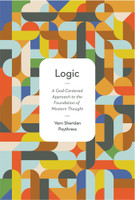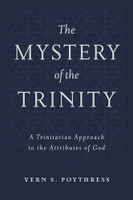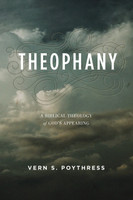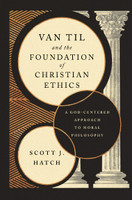
Redeeming Mathematics: A God-Centered Approach (Poythress)
- Affordable shipping (free $100+)
- 100,000+ customers served
- "Wonderful books, great prices, awesome customer service." – Ivan, IL
What does God have to do with mathematics?
Everything.
In this book, Vern Poythress argues that the harmony of abstract mathematical truths, the physical world of things, and the personal world of our thinking depends on the existence of the Christian God. Poythress shows that these distinct “perspectives” on mathematics cohere because all three find their origin in God’s consistent character and nature.
Whether it’s simple addition and subtraction or more complex mathematical concepts such as set theory and the nature of infinity, this fascinating book lays a theistic foundation for all mathematical inquiry.
Table of Contents:
Introduction: Why God?
Part 1: Basic Questions
- God and Mathematics
- The One and the Many
- Naturalism
- The Nature of Numbers
Part 2: Our Knowledge of Mathematics
- Human Capabilities
- Necessity and Contingency
Part 3: Simple Mathematical Structures
- Addition
- The Idea of What Is Next
- Deriving Arithmetic from Succession
- Multiplication
- Symmetries
- Sets
Part 4: Other Kinds of Numbers
- Division and Fractions
- Subtraction and Negative Numbers
- Irrational Numbers
- Imaginary Numbers
- Infinity
Part 5: Geometry and Higher Mathematics
- Space and Geometry
- Higher Mathematics
Appendix A: Secular Theories about the Foundations of Mathematics
Appendix B: Christian Modifications of Philosophies of Mathematics
Appendix C: Deriving Arithmetic
Appendix D: Mathematical Induction
Appendix E: Elementary Set Theory
Author
Vern S. Poythress is professor of New Testament interpretation at Westminster Theological Seminary, where he has taught for over three decades. He has six earned degrees, including a PhD from Harvard University and a ThD from the University of Stellenbosch. He is the author of numerous books on a variety of topics, including biblical interpretation, language, and science.
Endorsement
“Redeeming Mathematics is a valuable addition the growing literature on the relationship between mathematics and Christian belief. Poythress’s treatment of three distinct dimensions of mathematics—as transcendent abstract truths, as part of the physical world, and as comprehensible to human beings—is a unique and helpful addition to the conversation on this relationship. The book is accessible to non-specialists, but even those who are well-versed in these matters will find much to interest and challenge them.” — James Bradley, Professor Emeritus of Mathematics, Calvin College; author, Mathematics Through the Eyes of Faith; Editor, Journal of the Association of Christians in the Mathematical Sciences





